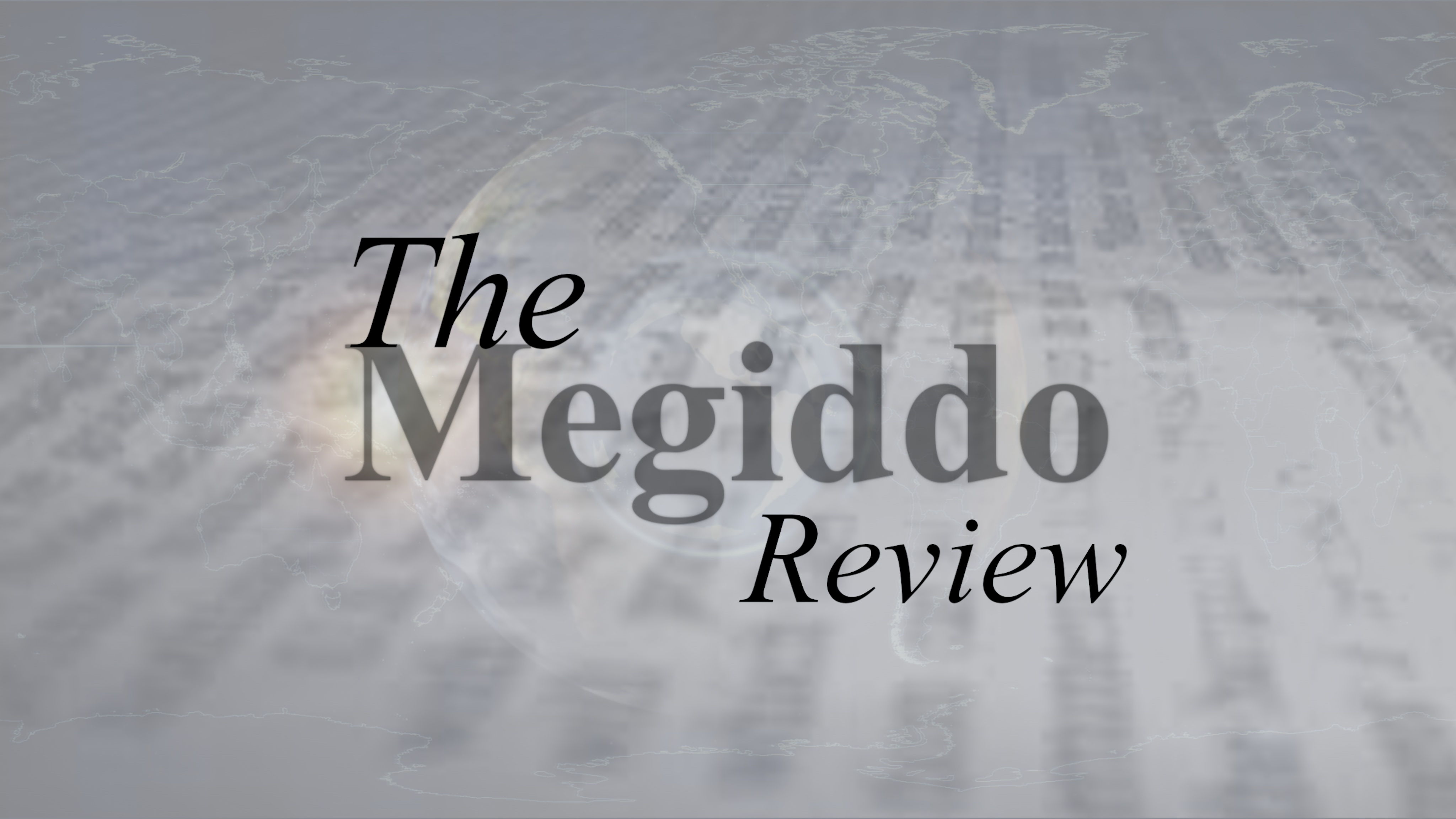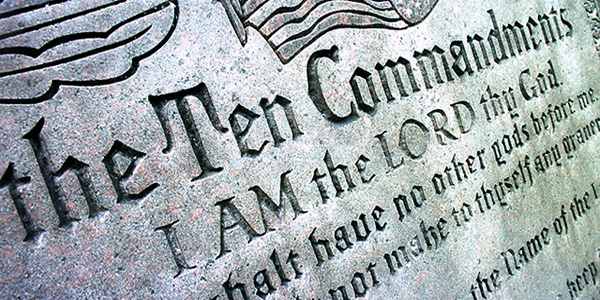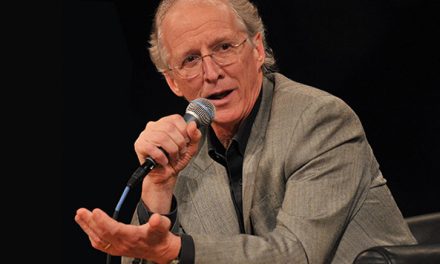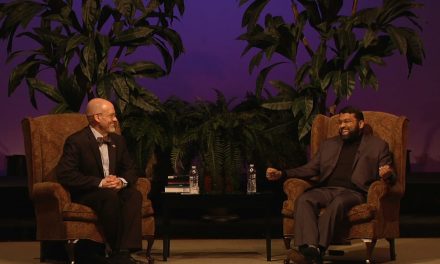“Remember the sabbath day, to keep it holy. Six days shalt thou labour, and do all thy work: But the seventh day is the sabbath of the LORD thy God: in it thou shalt not do any work, thou, nor thy son, nor thy daughter, thy manservant, nor thy maidservant, nor thy cattle, nor thy stranger that is within thy gates: For in six days the LORD made heaven and earth, the sea, and all that in them is, and rested the seventh day: wherefore the LORD blessed the sabbath day, and hallowed it.”
–Exodus 20:8-11
When reading or studying the ten commandments it is often claimed by modern Christians, and even by some great men of the past, that the fourth commandment was for the Jews only, being purely ceremonial in nature. This is a great area of controversy for the Church. People today heatedly want to avoid studying this issue as I once did. I once associated it with the legalistic Judaising tendencies of some or with cults like Seventh Day Adventism. We must however study this issue for the benefit of our eternal souls and that God may be glorified by us keeping, however imperfectly, His commandments.
“If ye love me, keep my commandments.” –John 14:15
There is no contradiction between being loving and loving God’s law as the Psalmist wrote in Psalm 1:
“Blessed is the man that walketh not in the counsel of the ungodly, nor standeth in the way of sinners, nor sitteth in the seat of the scornful. But his delight is in the law of the LORD; and in his law doth he meditate day and night.” –Psalm 1:1-2
Let us now look at this issue, prayerfully, that we may love God according to His Word and not in a spirit of legalism as the law should be our delight, if used lawfully.
Creation Ordinance
The Fourth Commandment includes the following in verse 11: “For in six days the LORD made heaven and earth, the sea, and all that in them is, and rested the seventh day: wherefore the LORD blessed the sabbath day, and hallowed it.” This part of scripture ties the fourth commandment back to creation. It also points out that the Sabbath was not given first at Mount Sinai in the Tables of Stone to the Jews but that this commandment was given during the creation week to mankind.
“Thus the heavens and the earth were finished, and all the host of them. And on the seventh day God ended his work which he had made; and he rested on the seventh day from all his work which he had made. And God blessed the seventh day, and sanctified it: because that in it he had rested from all his work which God created and made.” –Genesis 2:1-3
The Sabbath rest was observed by Adam and Eve during that first week before Adam even fell, therefore it is a creation ordinance which was not part of the ceremonial law (as this was before sin had entered the equation). It was for man’s benefit as the New Testament scriptures confirm:
“The sabbath was made for man, and not man for the sabbath” –Mark 2:27
Note it was given to man, or Adam as man’s representative in the Garden, and not only to the Jews.
Marriage is another example of a creation ordinance that predates the fall of man. These are things that will not be done away with until the end of time. God blessed the Sabbath day and sanctified it, which means to make it holy. It was made a holy day unto the Lord. Because of this it is a moral and perpetual command for all mankind until the end of time, like all of the other commandments of the Decalogue which are a summary of the Eternal or Moral Law of God.
To rest on the Sabbath here was not idleness, which the scriptures clearly condemn (Ezekiel 16:49), but to be active in worship and to be refreshed in the Lord. God worked for 6 days in creation which we must follow by example, working 6 days in our normal employment, but then setting aside or setting apart that day for the worship of God only (resting in Him). Anything else that is done should only be works of necessity and mercy.
We can see this Sabbath being observed by Israel, but before the giving of the Law in Mount Sinai, in Exodus Chapter 16. In Exodus 16:4-5 it talks about their preparation for the Sabbath on the 6th day when it states: “Then said the LORD unto Moses, Behold, I will rain bread from heaven for you; and the people shall go out and gather a certain rate every day, that I may prove them, whether they will walk in my law, or no. And it shall come to pass, that on the sixth day they shall prepare that which they bring in; and it shall be twice as much as they gather daily.” They gathered twice as much on the sixth day so that they could rest on the seventh.
“And he said unto them, This is that which the LORD hath said, To morrow is the rest of the holy sabbath unto the LORD: bake that which ye will bake to day, and seethe that ye will seethe; and that which remaineth over lay up for you to be kept until the morning. And they laid it up till the morning, as Moses bade: and it did not stink, neither was there any worm therein. And Moses said, Eat that to day; for to day is a sabbath unto the LORD: to day ye shall not find it in the field. Six days ye shall gather it; but on the seventh day, which is the sabbath, in it there shall be none. And it came to pass, that there went out some of the people on the seventh day for to gather, and they found none. And the LORD said unto Moses, How long refuse ye to keep my commandments and my laws? See, for that the LORD hath given you the sabbath, therefore he giveth you on the sixth day the bread of two days; abide ye every man in his place, let no man go out of his place on the seventh day. So the people rested on the seventh day.” –Exodus 16:23-30
From this passage it is clear that the Sabbath was not introduced at Sinai but was being observed before the 10 commandments were written on physical tables of stone. How did they know to keep the Sabbath? Because they followed the example of God in Genesis 2:1-3. The Moral Law is the very character of God and for this reason it cannot change. Positive laws or ordinances such circumcision and Passover can change but the very character of God, that righteous standard cannot change. This was the case in the Garden of Eden and after the Garden of Eden. God never alters his standard. For God to alter His eternal legal standard would be for Him to deny Himself and His righteousness.
Mount Sinai
At Mount Sinai Moses was given ten commandments. All of which were the summary of the Moral Law or Eternal Law. This is readily admitted by many including dispensationalists, at least for 9 of the commandments, relying on the argument that they are repeated in the New Testament. These laws however in no way need to be repeated in the New Testament to be shown to be perpetual, only that they are moral as opposed to ceremonial or positive. The Bible is also quiet clear that the Mosaic economy has been abrogated (Hebrews 8:9) but let us run from the New Testament only idea as the majority of the Bible becomes neglected in the process. How can we can expect to rightly divide the Word of Truth if we split the Word of God into artificial segments while assuming God changes His standards and essentially His Law. Dispensationalists often do not at all seek to do this but, often because of the superficiality of their hermeneutic, this is often the end result.
The Ten Commandments are special, especially in contrast to the temporary ceremonial laws, as they have been written by the finger of God as seen in Exodus 31:18. They were also spoken directly by the voice of God, in contrast to the ceremonial or judicial laws.
This moral law is also different as it has been written on man’s heart, as man has been created in the image of God but man has withheld or held the truth in unrighteousness (Romans 1:18-22; 2:12-15). What happened at Sinai was a republication of the Moral or Eternal Law of God. This was the law written on man’s heart in the Garden of Eden but had fallen into darkness due to sin (Genesis 1:26-28; Ecclesiastes 7:29). The law to not eat of the fruit of the tree of the knowledge of good and evil was a positive law to test obedience to the Moral Law. The Moral Law was broken when the positive law given by God was broken (James 2:10). Christ also promises that His law will not pass away and this cannot possibly be referring to positive, ceremonial or judicial temporary additions to the law of God (Matthew 5:18).
It was also clear after Sinai that the one in seven day Sabbath law was not ceremonial, as it was binding upon the foreigner in the land as the scriptures state:
“Six days thou shalt do thy work, and on the seventh day thou shalt rest: that thine ox and thine ass may rest, and the son of thy handmaid, and the stranger, may be refreshed.” –Exodus 23:12
During the Mosaic economy no foreigner, or stranger as it is put here, is allowed to be part of any of the ceremonial activities but the one day in seven Sabbath was binding upon all. This is consistent as it is a Moral Law. There were other holy days introduced during the Mosaic economy but these were abrogated at the cross of Christ (Col 2:16-17). For the first few thousand years the Patriarchal and Jewish Church had only one holy day. Since the Mosaic economy has been abrogated, and not every law given to man as some claim, this is now the case once more.
New Testament Witness
The Sabbath is discussed in the New Testament scriptures but often when people look at Christ’s observance of the Sabbath they foolishly believe that He has made the law more relaxed or changed it. While ceremonial aspects can be changed since Christ’s resurrection from the dead, and certain situations of mercy and of necessity are allowed already in the Old Testament scriptures, the Moral Law or Eternal Law cannot change. For it to change it would require God to change as He himself is the righteous perfect standard expressed in the Law. We are to be like God. God is God, He cannot and will not change so therefore His law will never change.
Passages that speak to the Sabbath in the New Testament are Matthew 12:1-8, Mark 2:23-28 and Luke 6:1-5. However this was still under the Mosaic economy so no change was seen here, only a clarification and correction of the Pharisees errors on the Sabbath. The Pharisees accused Christ and his disciples of breaking the Sabbath but they did not, as acts of mercy or necessity were allowed. The Westminster Confession of Faith writes in Chapter 21:8 that the “Sabbath is then kept holy unto the Lord, when men, after a due preparing of their hearts, and ordering of their common affairs beforehand, do not only observe an holy rest, all the day, from their own works, words, and thoughts about their worldly employments and recreations, but also are taken up the whole time in the public and private exercises of His worship, and in the duties of necessity and mercy.”
John, on the Isle of Patmos, was worshiping with his God on “the Lord’s day” in Revelation 1:10. The common objection here is that every day is the Lord’s day; but this argument is absurd as if it was not a special day, unlike every other day of the week, why point to it as such? Robert Dabney wrote that: “It is the day that belongs especially to the Lord. But as all our days belong in one sense to him, the only meaning is that the first day of the week is now set apart and hallowed to Christ. In Isa. 58:13 the Sabbath is called by God “my holy day; ” in 56:4, “my Sabbath.” That was God’s day; it belonged to God. This is Christ’s day, and in the same sense belongs to Christ. It is consecrated to his worship as was the Sabbath; it is virtually “the Christian Sabbath.“”
–Discussions of Robert Dabney, Volume One, Pg. 536
Common Objections
The biggest, most common objection is that it is taking a Jewish holy day and putting it into the Church of the New Covenant. People often accuse people who hold to the Christian Sabbath as being legalistic or Judaising the Church. Common verses that people point to that say the Sabbath has nothing to do with the church of today are as follows:
“One man esteemeth one day above another: another esteemeth every day alike. Let every man be fully persuaded in his own mind. He that regardeth the day, regardeth it unto the Lord; and he that regardeth not the day, to the Lord he doth not regard it. He that eateth, eateth to the Lord, for he giveth God thanks; and he that eateth not, to the Lord he eateth not, and giveth God thanks.”
–Romans 14:5-6
“But now, after that ye have known God, or rather are known of God, how turn ye again to the weak and beggarly elements, whereunto ye desire again to be in bondage? Ye observe days, and months, and times, and years. I am afraid of you, lest I have bestowed upon you labour in vain.”
–Galatians 4:9-11
“Let no man therefore judge you in meat, or in drink, or in respect of an holyday, or of the new moon, or of the sabbath days: Which are a shadow of things to come; but the body is of Christ.”
–Colossians 2:16-17
In all of these verses the ceremonial law is being spoken about. The Jews had additional Sabbaths of a ceremonial nature and this is clear from the context as it mentions eating certain foods and observing months etc. It also says ‘Sabbath days’ (ceremonial additions) and not ‘the Sabbath day’. The Sabbath day can be done away with as much as other creation ordinances like marriage can done away with.
These verses deal mainly with new Jewish converts mixed with other Gentile believers in the Church. During the transition from the Mosaic economy to the New Covenant administration, they continued to keep the old Mosaic ceremonial laws, as it was understandably difficult for weaker believers to let go of many parts of their tradition. The problem was when these Jews started to see these ceremonial laws as binding on the whole church. The council in Jerusalem in Acts 15 dealt with such a controversy. Romans 14 is not talking about lawlessness for holy days as some would presume but that during the transition for Jewish believers, grace and patience was afforded to weaker believers as they attempted to leave behind what was once lawfully observed and given by God in the Old Covenant administration (2 Corinthians 3).
“Now those that had been Jews were trained up in the observance of the ceremonial appointments touching meats and days. This, which had been bred in the bone with them, could hardly be got out of the flesh, even after they turned Christians; especially with some of them, who were not easily weaned from what they had long been wedded to. They were not well instructed touching the cancelling of the ceremonial law by the death of Christ, and therefore retained the ceremonial institutions, and practised accordingly; while other Christians that understood themselves better, and knew their Christian liberty, made no such difference.” –Matthew Henry on Romans 14:5-6
The Galatians however wanted to pervert the gospel with a heretical use of the law and bring themselves under the Jewish ceremonial law for their Justification. The Galatians had a false understanding of the gospel and this in no way abrogates any part of the ten commandments.
This in no way will cover every objection a person will have, but often the biggest objections can come, not from our intellectual understanding, but rather from a heart that does not want to give their entire Sunday to the Lord and to His worship. Are we willing to surrender one day to Him?
Sunday
So if the Sabbath is still binding on the Christian, why then does the Christian worship on Sunday? Is the Church in error as Seventh Day Adventists often claim, or is there a reason for the change in day of the Sabbath?
First of all, the fourth commandment nowhere says that the Sabbath is the seventh day of the week. This is often erroneously presumed. However the only thing the commandment calls for is to labour for 6 days and then on the seventh day to rest in the Lord. We are to worship Him and keep it from worldly activities lawful on other days of the week. The command is that one is seven days is to be kept holy. As Jonathan Edwards states: “There is no direction in the fourth command how to reckon the time, i.e. where to begin and end it; but that is supposed to be determined otherwise.” –Jonathan Edwards, Works, Pg. 96
From man’s first week the pattern was followed as laid down in creation but after the resurrection of Christ Christians met on the first day of the week. This was based on the fact that He rose from the dead on the first day of the week as followed in Apostolic example as they worshipped on the first day of the week. The Sabbath was not removed from the Moral Law but it’s timing moved to Sunday to celebrate his resurrection (Matthew 28:1, Mark 16:9, Luke 24:1, John 20:1).
“The christian sabbath, in the sense of the fourth command, is as much the seventh day, as the Jewish sabbath; because it is kept after six days of labour as well as that; it is the seventh, reckoning from the beginning of our first working-day, as well as that was the seventh from the beginning of their first working day. All the difference is, that the seven days formerly began from the day after God’s rest from the creation, and now they begin the day after that. It is no matter by what names the days are called: if our nation had, for instance, called Wednesday the first of the week, it would have been all one as to this argument.” –Jonathan Edwards, Works, Pg. 97.
The Christians of the New Covenant Church met to worship on the first day (Acts 20:7; 1 Corinthians 16:2). This is the consistent pattern for the Christian Church which was echoed by early church fathers in the first few centuries after Christ. It was also on this day that He poured out His spirit at Pentecost (Acts 2).
Early Church Testimony
If this is true then we would expect that some early church fathers, and historians who wrote about Christians of the day, would agree that Sunday is now the Christian Sabbath. Consider the following quotations from various sources:
“[T]his is the Lord’s day, the day consecrated to the resurrection, the chief and queen of all the days.” –Ignatius of Antioch, The Epistle to the Magnesians
“[A]ll accustomed to meet on the day which is denominated Sunday, for reading the Scriptures, prayer, exhortation and communion. The assemblies met on Sunday, because this is the first day on which God, having changed the darkness and the elements, created the world, and because Jesus our Lord on this day arose from the dead.” –Justin Martyr, who died about 160A.D.
“A true Christian, according to the commands of the gospel, observes the Lord’s day by casting out all bad thoughts and cherishing all goodness, honoring the resurrection of the Lord, which took place on that day.” –Clement of Alexandria
“Christians were accustomed to meeting on a sacred day…to sing amongst themselves hymns to Christ as to God.”–Pliny the Younger (61-c.113), who was a lawyer, author and magistrate in Rome.
“‘The Word’ (Christ) by the new covenant translated and transferred the feast of the Sabbath to the morning light, and gave us the symbol of the true rest, the saving Lord’s day, the first of light, in which the Saviour gained the victory over death. On this day, which is the first of the Light and the true Sun, to assemble after the interval of six days, and celebrate holy and spiritual Sabbath; even all nations redeemed by him throughout the world assemble, and do those things according to the spiritual law which were decreed for the priests to do on the Sabbath. All things which it was duty to do on the Sabbath, these we have transferred to the Lord’s day, as more appropriately belonging unto it, because it has the precedence, and is first in rank, and more honourable than the Jewish Sabbath. It hath been enjoined on us that we should meet together on this day, and it is evidence that we should do these things announced in this psalm.” –Eusebius of Caesarea, written about 325 A.D. on the 92nd Psalm (This Psalm has the title ‘A Psalm or Song for the Sabbath day’.)
In Conclusion
Sadly many will still hold that observing the Sabbath is legalistic and a return to the bondage of the Mosaic economy but this is contrary to God’s command. The Lord’s day, the Christian Sabbath is meant to be a delight, and not a burden. If we love God, what better thing to do than to cease from our own works and then to be refreshed in Christ for the week ahead.
While there is so much more that could be said, let us leave this topic for now with the following scripture:
“If thou turn away thy foot from the sabbath, from doing thy pleasure on my holy day; and call the sabbath a delight, the holy of the LORD, honourable; and shalt honour him, not doing thine own ways, nor finding thine own pleasure, nor speaking thine own words: Then shalt thou delight thyself in the LORD; and I will cause thee to ride upon the high places of the earth, and feed thee with the heritage of Jacob thy father: for the mouth of the LORD hath spoken it.”
–Isaiah 58:13-14
Related Radio Show:






Hi Paul, Maybe you could read this book and do a show or article Scripturally addressing all of the points made. http://www.biblebasedministries.co.uk/product/the-sabbath-and-the-lords-day/